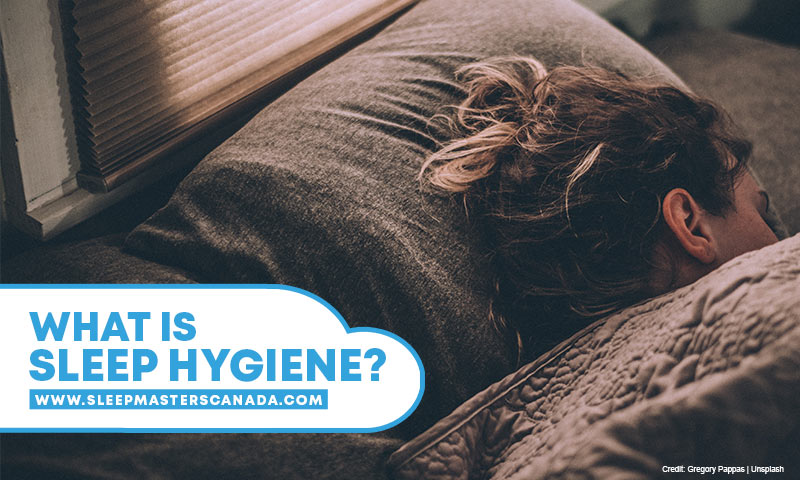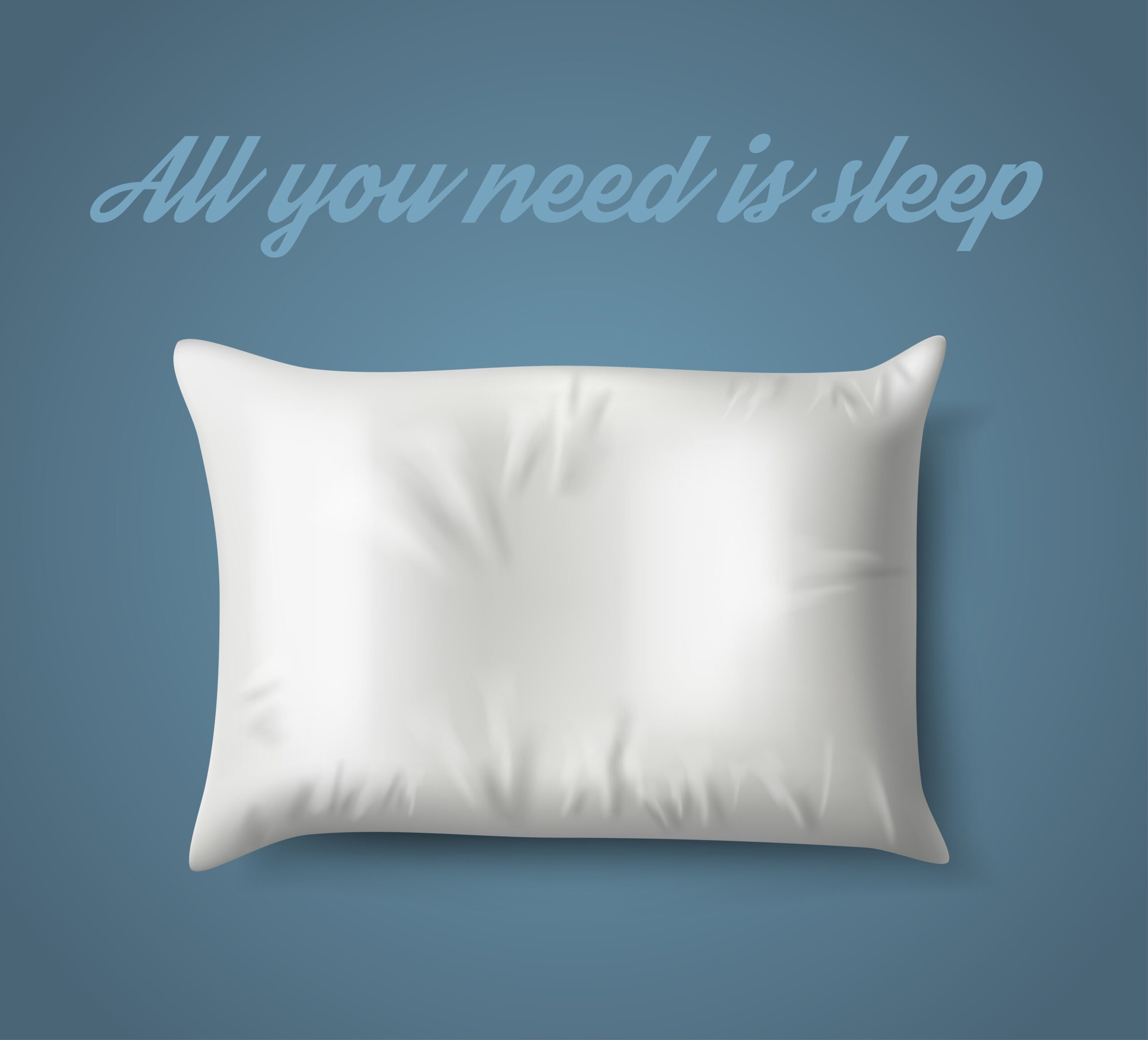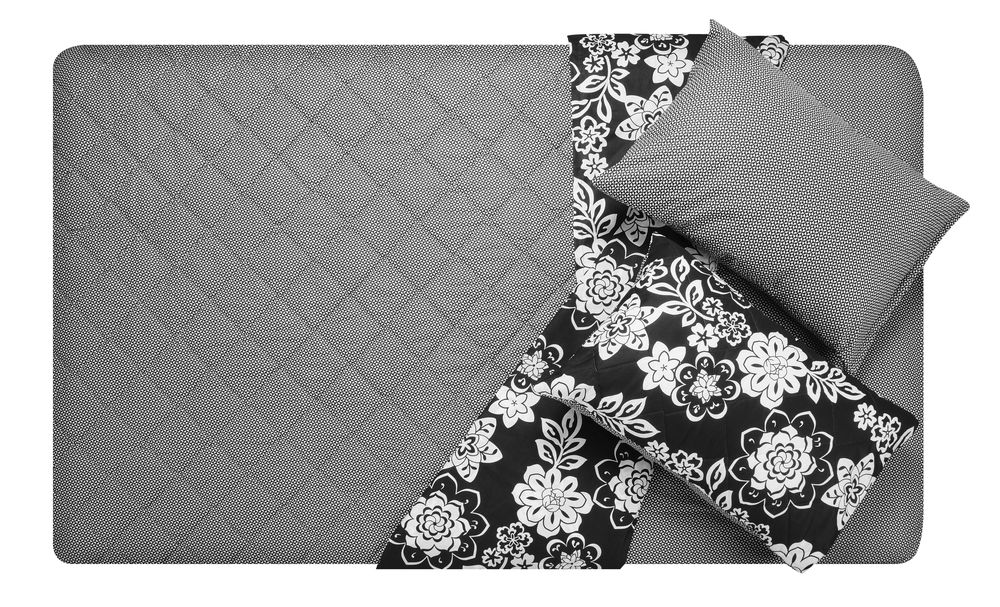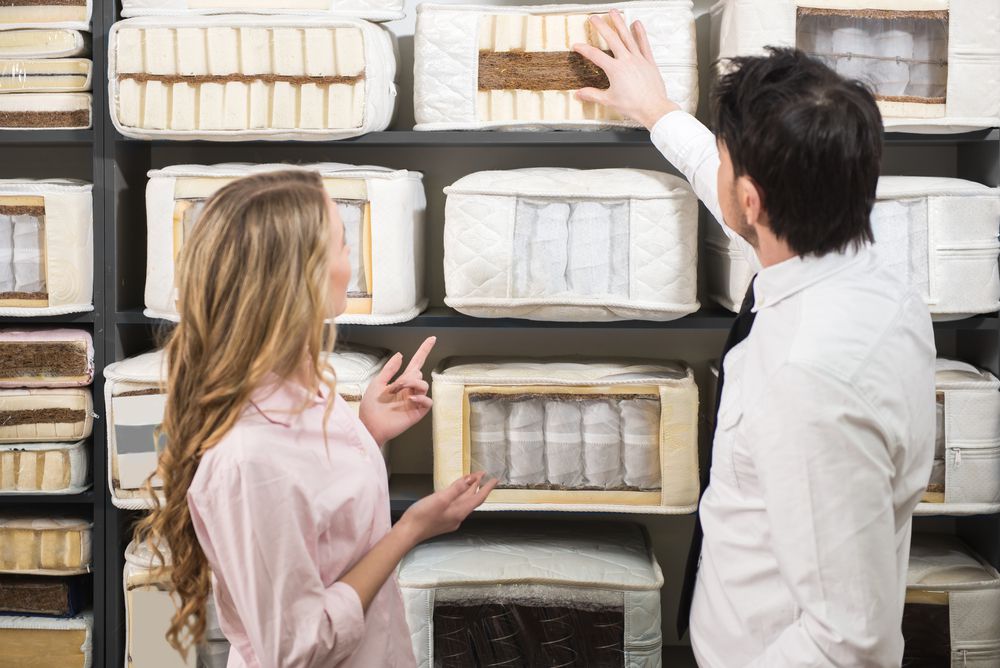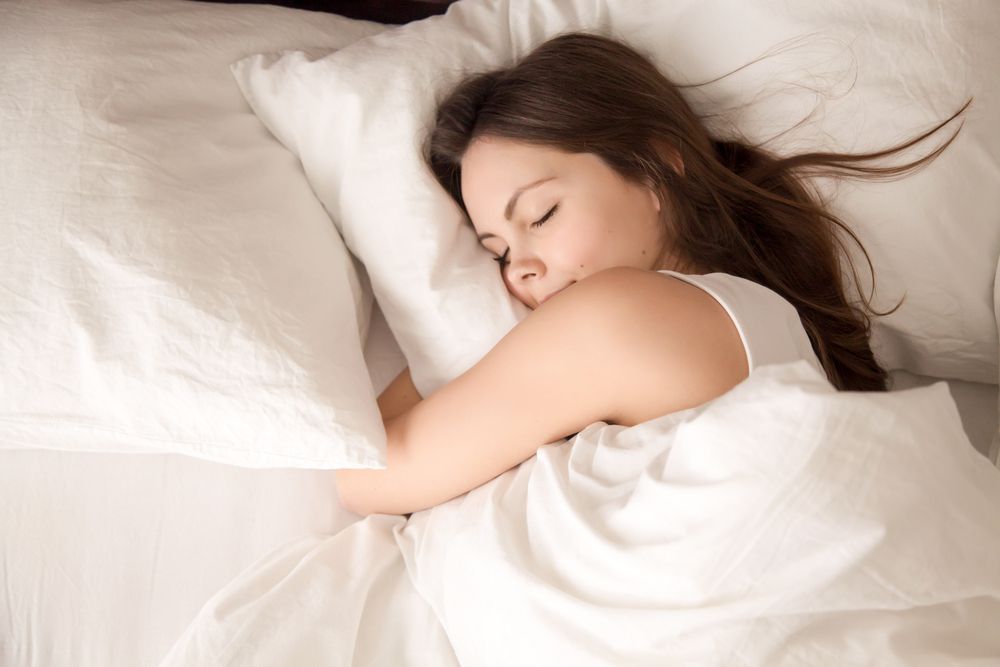What Is Sleep Hygiene?
Have you ever found yourself staring at your ceiling in the middle of the night and having a hard time falling asleep? Or, have you experienced waking up and thinking, “Time to get up!” only to discover it’s only 3 am?
Sleep is important for everyone, but an erratic sleeping schedule may be hindering you from getting the quality sleep you need. If you’ve tried and failed to get enough sleep, it’s probably time you pay attention to your sleep hygiene.
Why Is Sleep Hygiene Important?
Sleep hygiene refers to healthy habits so you experience the best quality sleep possible. Sleep problems are often reinforced by bad habits. Your dietary choices, schedule, and activities contribute to how much and how well you sleep. So, making adjustments to your lifestyle can all make the difference.
Everyone can create their own routine that suits their needs. By doing so, they can harness these good sleep hygiene habits to make it easier to sleep soundly at night and wake up well-rested.
Sleep is central to both physical and mental health, improved productivity, and overall quality of life. From children to adults, everyone stands to benefit from better sleep, and sleep hygiene has a key part in achieving that goal.
How to Practice Sleep Hygiene?
Because sleep hygiene is all about reinforcing good habits and developing healthy routines, practicing it is with virtually no risk and has little to no cost at all.
Here’s are a few sleep hygiene tips you can adapt to get the best sleep possible:
- Set a sleep schedule
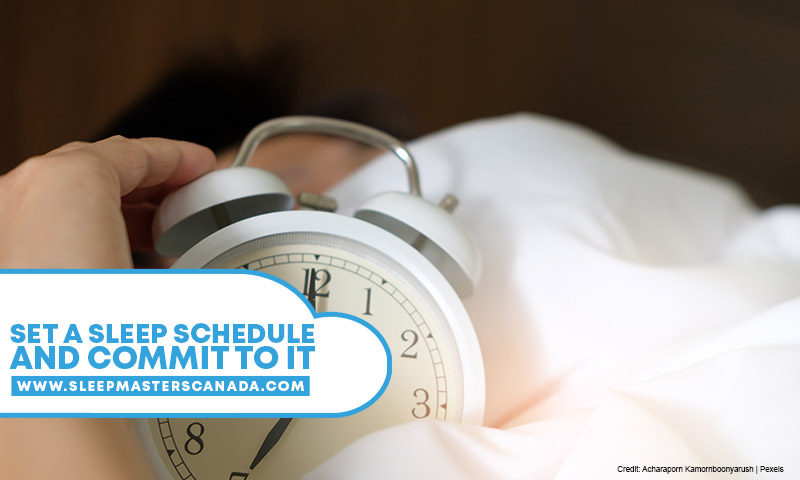 A set schedule allows your brain and body to get accustomed to your sleep cycle. It can also help reduce your feeling sleepy during the day. Remember when scheduling your bedtime to allow 7 to 8 hours of sleep each night.
A set schedule allows your brain and body to get accustomed to your sleep cycle. It can also help reduce your feeling sleepy during the day. Remember when scheduling your bedtime to allow 7 to 8 hours of sleep each night.
- Wake-up at the same time every day
Whether it’s a weekday or a weekend, practice having a fixed wake-up time. Having a consistent schedule keeps preserves your body’s natural rhythm. - Prioritize sleep
Treat sleep as a priority. It can be tempting sometimes to sacrifice sleep for work, study, or partying, but as a consequence, you may end up with an erratic schedule. Always calculate your bedtime based on your fixed wake-up time, and strive to prepare for bed around that time every night. - Step-by-step adjustments
If you need to shift your sleeping time, do it gradually and not in one fell swoop. Any changes in your schedule must be done step-by-step for up to an hour or two. That way you can properly adjust and settle into your new schedule. - Keep naps relatively short
Naps can be a convenient way to recover and regain energy during the day, but it can also make it harder for you to fall asleep at night. If you do need a nap, keep it short. The ideal nap lasts for 15 to 30 minutes only. Also, don’t nap in the late afternoon; this can push back your bedtime.
- Wake-up at the same time every day
- Create a relaxing bedtime routine
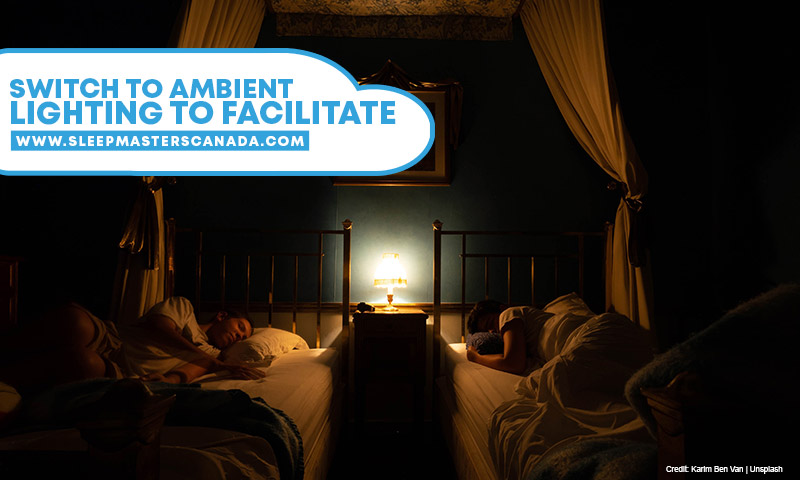 A relaxing bedtime routine helps you cool down while you ready to sleep. It also informs your brain that it’s bedtime and may help you fall asleep more easily. The best time to start your routine is approximately 30 minutes to an hour before bed.
A relaxing bedtime routine helps you cool down while you ready to sleep. It also informs your brain that it’s bedtime and may help you fall asleep more easily. The best time to start your routine is approximately 30 minutes to an hour before bed.
- Be consistent
When you create a routine, commit to it and do it consistently. Following the same steps, every night allows your mind to recognize that it is almost bedtime. - Dim your lights
Bright lights prevent your body from producing melatonin, a hormone that facilitates sleep. If you are ready for bed, turn off your overhead lights and switch to ambient lighting. You can also close the curtains to block out street lights from entering your room. - Turn off electronic devices
Electronic devices emit blue light, which also hinders melatonin production. This may make it harder for you to fall asleep. If possible, keep your phone away from the bed. The message notification sound, buzzing, and light can suddenly turn on in the middle of the night, interrupting your sleep. - Practice relaxation techniques
A healthy mental connection can help you fall asleep much faster. Focus on relaxation. Don’t just toss and turn in bed when you can’t sleep. Practice relaxation techniques, such as meditation, mindfulness, and paced breathing, to put you in the right mindset.
- Be consistent
- Cultivate a healthy lifestyle
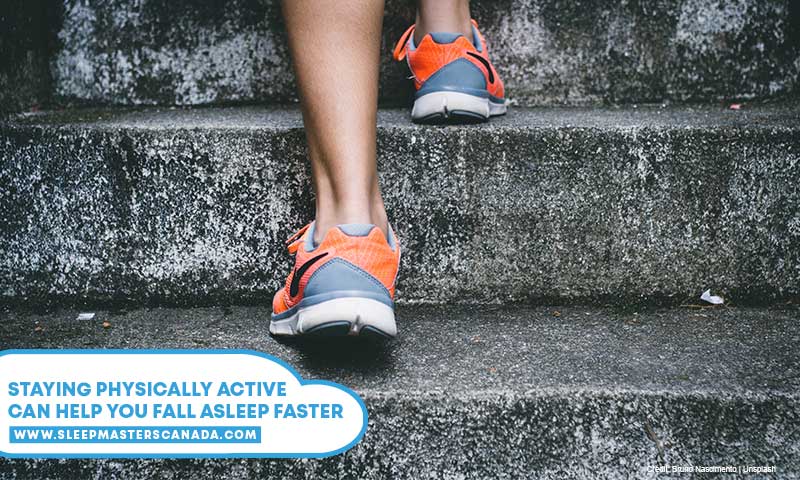 It’s not just what you do before bed that affects your sleep. Your activity during the day has as much effect on your circadian rhythm as your bedtime habits.
It’s not just what you do before bed that affects your sleep. Your activity during the day has as much effect on your circadian rhythm as your bedtime habits.
- Get daylight exposure
Light, especially daylight exposure, has a critical effect on how you sleep. When exposed to sunlight, the body sends information and signals to the brain about the time of the day. Getting daylight exposure allows your circadian rhythm to be closely synchronized with sunrise and sunset. - Exercise regularly
Exercise is not only good for your physical health but can also improve sleep. As little as 30-minute aerobic exercise can already do the trick. Just avoid any physical activity an hour or two before bedtime since this can increase your energy levels and body temperature. If you have to do some type of activity later in the day, limit it to a few stretches or yoga. - Don’t smoke
Smoking is bad for your health and has been associated with several sleeping problems. Nicotine stimulates the body, which makes it harder for you to sleep. - Reduce alcohol and caffeine intake
Alcohol may help you fall asleep, but once it wears off, it can disrupt your sleep later in the night. It’s best to control alcohol consumption and avoid intake late in the evening. Alternatively, caffeine is a stimulant that may block your body from feeling groggy. Best to avoid consuming it later in the day as well. - Avoid dining late
When you eat a big, heavy, or spicy dinner late, it means your body is still digesting when it’s already time to sleep. The best time to eat dinner is 3 hours before bedtime to allow your stomach to properly digest and prepare for sleep. It is also advisable to only eat lighter food before bed. - Limit bedroom activities
The bedroom should only be used for sleeping. Besides intercourse, other activities like working or studying should be done in other areas in the house. This helps strengthen your brain’s association of your bed with sleep.
- Get daylight exposure
- Make your sleep environment as relaxing as possible
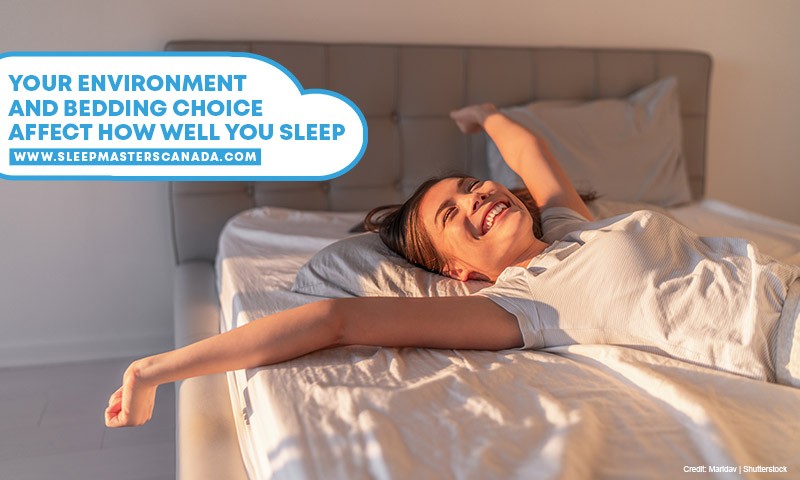 Proper sleep hygiene goes beyond mere routine. Your sleep environment is also a major component. If you want to doze off more quickly, your bedroom must be able to promote relaxation and comfort.
Proper sleep hygiene goes beyond mere routine. Your sleep environment is also a major component. If you want to doze off more quickly, your bedroom must be able to promote relaxation and comfort.
- Set a comfortable temperature
Set your bedroom temperature to suit your preferences. The best bedroom temperature for sleeping is approximately 65°F (or 18°C). - Block out possible sleep distractions
There are several factors, like traffic noise or street lights, that can wake you up while you sleep. Prevent too much light from interrupting your sleep by using heavy curtains or an eye mask. You can also use earplugs or try a white noise machine if noise bothers you. - Use aromatherapy
Light and calming scents, like lavender, may create a more calming atmosphere and can induce sleepiness. - Use pleasant bedding
The sheets and blankets are your primary companions while you’re in bed. They need to be as comfortable as possible, have the right texture, and maintain the right temperature. - Choose your mattress wisely
Your mattress is crucial to a comfortable and pain-free sleep. Make sure you select one that offers proper support and applies appropriate pressure dependent on your body weight and preferred sleeping position.
- Set a comfortable temperature
If you have a hard time falling or staying asleep, focus on improving your sleep hygiene. You can try several strategies to help you fall asleep faster and stay asleep for hours.
One of the first steps is to get an excellent quality mattress. At Sleepmasters Canada, we have a wide selection of high-quality mattress that suits your needs. Call us at (416) 781 7441 and achieve the best sleep you’ve been dreaming of.

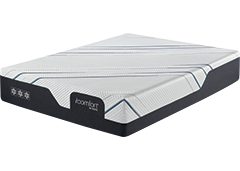 Serta
Serta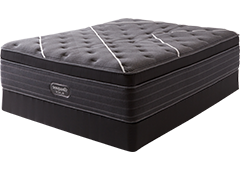 Simmons BeautyRest®
Simmons BeautyRest® Pocket Coil
Pocket Coil Memory Foam
Memory Foam Pillow-Top
Pillow-Top Dreamstar Mattresses
Dreamstar Mattresses Mattresses under $500
Mattresses under $500